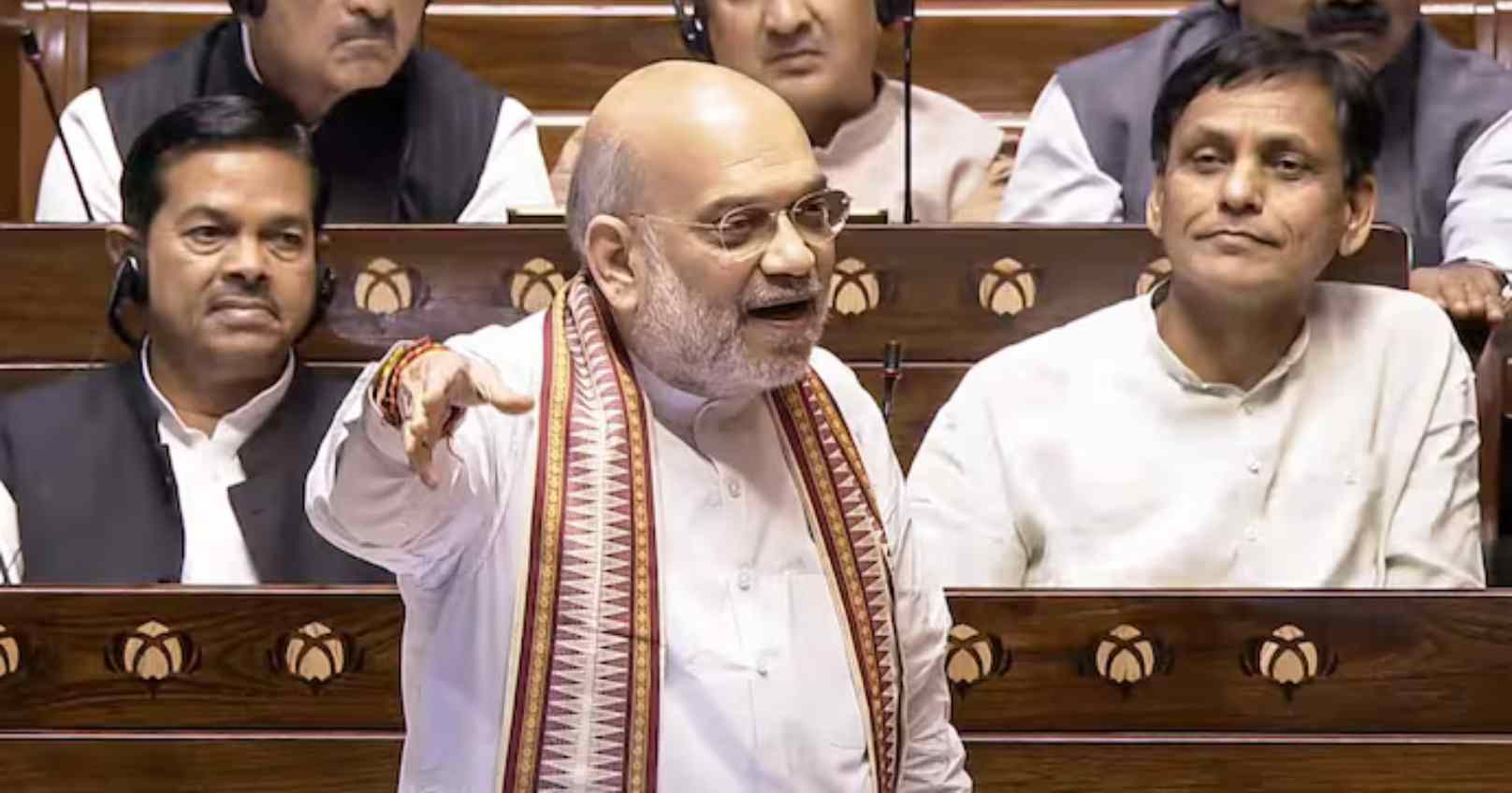Union Home Minister Amit Shah stated on Thursday that India is open to welcoming tourists, students, business professionals, and those seeking medical care, but emphasized that individuals posing a threat to national security would face strict measures. He made these remarks during a discussion in the Lok Sabha on the Immigration and Foreigners Bill, 2025, which was subsequently passed by the House.
Shah clarified that the government, under Prime Minister Narendra Modi’s leadership, would prevent only those with malicious intent from entering India. He asserted that the country should not be viewed as a dharamshala (shelter home).
"Anyone contributing to India's growth is welcome, but individuals endangering national security will not be allowed entry," he said.
Strengthening National Security and Economic Growth
The Home Minister explained that the proposed law aims to enhance security, promote economic activities, and benefit key sectors like education and healthcare. He further noted that the bill would ensure the government maintains updated records of all foreigners visiting India.
Addressing concerns over illegal migration from Myanmar and Bangladesh, particularly among Rohingyas, Shah highlighted the growing number of individuals seeking refuge in India for personal benefit, which, he warned, could compromise the country’s security. He assured strict action against any infiltrators causing unrest.
"The bill is a step towards making India the world’s most developed nation by 2047. I assure the citizens that every foreigner entering India will be monitored with updated records," he said.
"I welcome visitors coming for tourism, education, healthcare, business, or research, but those intending to harm the country will be closely monitored and dealt with firmly," he added.
Criticism of West Bengal Government Over Border Security
Shah took aim at the Trinamool Congress-led West Bengal government, accusing it of failing to address illegal immigration. He pointed out that 450 km of fencing along the India-Bangladesh border remains incomplete because the state government has not provided the necessary land.
"Whenever fencing work begins, ruling party workers disrupt it with hooliganism and religious slogans. The state government is protecting infiltrators instead of securing the border," he alleged.
He further claimed that despite repeated requests—11 official letters and seven rounds of discussions—the West Bengal government had not taken action to facilitate border fencing.
"The highest number of fake Aadhaar cards were found in South 24 Parganas. But don't worry, we will come to power in Bengal next year, and the remaining fencing will be completed," Shah asserted.
Key Provisions of the Immigration and Foreigners Bill, 2025
The new bill introduces stringent measures against unauthorized entry and fraudulent documentation. It stipulates that individuals caught using fake passports or visas to enter, stay in, or exit India could face up to seven years in prison and fines up to ₹10 lakh.
Additionally, the legislation mandates that hotels, universities, hospitals, and other institutions report details of foreigners to ensure effective monitoring of overstayers.
Any foreigner entering India without valid travel documents or violating visa regulations could be sentenced to a maximum of five years in prison, fined up to ₹5 lakh, or both.
Currently, immigration and foreigner-related matters are governed by four separate laws: the Passport (Entry into India) Act of 1920, the Registration of Foreigners Act of 1939, the Foreigners Act of 1946, and the Immigration (Carriers' Liability) Act of 2000. The new bill seeks to replace these outdated laws with a single comprehensive framework.







